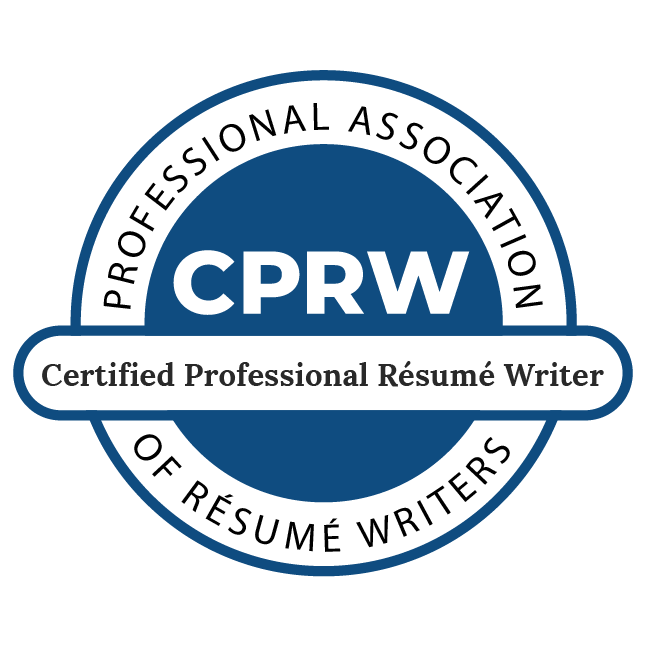The following blog post has been written by Upword Resume founder, Angela Ashurst-McGee.
I’ve been a Certified Professional Resume Writer for more than 15 years. And in that time, I’ve seen thousands of resumes. I’ve written resumes for everyone from Fortune 50 execs to students; from biotech professionals to plumbers and landscape artists. Across those thousands of resumes, a handful of guiding principles stand out.
Here are the top 10 things I’ve found that people are most confused by when it comes to their resumes and what guiding principles you need to know to keep your resume on track – tip #10 will surprise you!
Tip #1: A resume is a functional document
In resume-speak, we omit pronouns, we use sentence fragments, and we generally skip articles (👋🏼 the and an). Many usages and syntax conventions that would be errors in regular business writing are acceptable and even preferred in resumes. Why? Because a resume is a functional document, meant to capture your whole work history in an easy-to-digest format. So don’t get hung up on elegant language or “correct” grammar. You definitely don’t want errors or typos, but embrace function over form.
Tip #2: Resumes shouldn’t use fancy formatting
See above. Your resume is a work-horse document designed to get the job done. Graphics, icons, and text boxes look great, and the template you downloaded from etsy is beautiful, but bottom line – recruiters aren’t assessing you based on the beauty of your resume. And in fact, they generally say that they find graphical elements distracting.
What’s more, many of those design elements can work against you by making your resume harder to read by ATS filters. It’s ok to use some color, and you should make sure your resume is readable and attractive, but don’t overdo it with fancy formatting.
Tip #3: Your resume needs dates
Some job seekers are tempted to use a “functional” or “skills-based” resume, where bullet points are grouped by topic rather than in a chronological work history. My two cents? Don’t do it. Recruiters consistently tell us that they need to see your accomplishments within the context of roles and timelines, so be sure to list dates for each role.
The one caveat to this rule: If you have a long work history, you can omit dates for roles that are more than ten years old. We also don’t recommend listing the dates of your college graduation.
Tip #4: Your resume needs numbers
Numbers and metrics are gold when it comes to resumes. Anyone can say, “I’m good at sales” or, “I’m a good team leader.” But when you can say “I grew sales 20% over the prior year” or “I increased team productivity by 5%” that gets recruiters’ attention. Quantify your accomplishments with numbers – even if they’re ballpark estimates – wherever you can.
Tip #5: Your resume is not a full disclosure document
Your resume must be 100% honest and accurate. But that doesn’t mean it has to include everything. Things like why you left a job, old or irrelevant roles, and duties that were unimportant or unimpressive. All of these things can be left off your resume. The resume should list the information that helps show you’re the person for the job you are applying for.
Tip #6: Some jobs don’t have to be included on your resume
See tips #3 and #5 above. If a job lasted for less than a year or if it’s more than ten years old, you can choose to omit it from your resume completely! Same goes for your Linkedin profile. In these cases, make the decision whether to include or omit based on the Magic Yardstick, and ask yourself, “Does this item show how I add value to my prospective employer?”
Tip #7: Your resume should have more detail on recent jobs and less on older ones
Picture an upside-down pyramid – your current job should generally have the most bullet points. As you progress down the pages to older jobs, each should generally have a little less detail. This keeps the focus on your most current and relevant roles.
Tip #8: Your resume should be all about outcomes and results
Yes, your resume should describe what you did, but mostly it should describe the benefits and outcomes of what you did. Think “reduced manufacturing time by 3 days” and not “reorganized shop floor.”
Tip #9: Remember, it’s not bragging – it’s data
It can feel a bit cringe to write about yourself on your resume. But, it’s not bragging if it’s true. Think of your resume as documenting the facts of your accomplishments. And if you’re padding your resume with filler words like “successfully” and “exceptional,” swap those out for numbers, stat! See tip #4 above.
Tip #10: Your resume probably should be two pages long
Almost all established professionals should have a two-page resume. That’s what recruiters generally expect, and that’s what it takes to capture your relevant career data. Yes, brevity is a virtue in resumes – don’t fluff or add unneeded detail. But don’t trim so aggressively that you’re leaving out data that could help demonstrate why you’re the person for the job. If you’re having trouble fitting everything into two pages, see tips #6 and #7 above.
Exceptions to the rule: Entry-level or recent grads can often do a one-page resume. And academics and scientists often use a CV, which can be much longer than two pages. Federal resumes also generally go over two pages.
After spending more than a decade and a half in the resume writing industry, I confidently share these insights with you. The truth is, a well-crafted resume is more than just a list of jobs – it’s a reflection of your professional journey, your value, and your potential. Each resume is unique, much like the individual it represents.
If you’re feeling overwhelmed by the resume creation process or simply want an expert’s touch to ensure you’re putting your best foot forward, Upword Resume is here for you. Take the next step in your career by investing in one of our specialized resume services today. Your future awaits, and we’re here to help you seize it.


